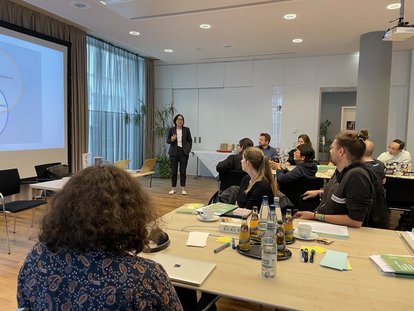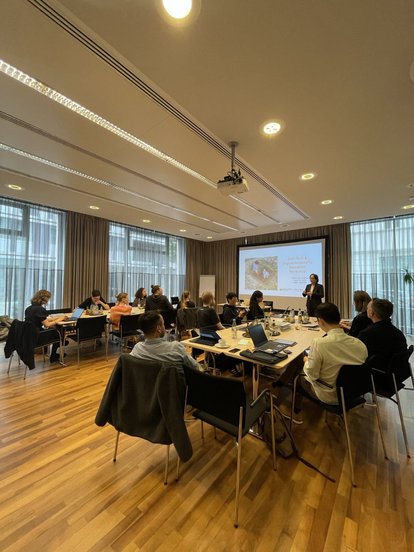Event
Civic Tech and Digital Citizenship Education Workshop in Berlin: Let’s co-create a manual to foster democracy together

Civic tech, short for "civic technology," refers to the use of technology to improve the relationship between citizens and their government. A leading example is the Taiwanese civic tech community g0v ("gov zero"), which has gained international recognition for its successful collaboration with the government. One of their most well-known initiatives was the real-time visualization of mask availability in stores during the COVID-19 pandemic. Examples like this inspire communities worldwide to start similar initiatives in their regions. But how can such a fruitful collaboration between civil society and government be initiated?
On June 5, the Civic Tech and Digital Citizenship Education Workshop in Berlin offered a blueprint for g0v's successful methods. This workshop, co-hosted by the FNF Global Innovation Hub with g0v's sch001 ("school 01") aimed to equip participants with the skills needed to start their own civic tech projects. Using the g0v Civic Tech Project & Community Handbook, attendees received training and simultaneously provided feedback on how to improve the Handbook.

Isabel Hou, co-founder of g0v Sch001 and former chair of g0v jothon, kicked off the workshop with an introduction to g0v's history and its success stories. She highlighted organizations such as Cofacts and the Information Operation Research Group, both founded by g0v members, which specialize in combating disinformation from different angles. Isabel Hou together with Tiff Lin, a contributor for g0v sch001, then guided attendees through the process of building their civic tech projects and communities step by step. Here's how they led the participants through the journey:
- Identifying Local Issues: Participants were tasked with pinpointing problems in their hometowns that could potentially be addressed through technology. The brainstorming sessions resulted in a variety of ideas, such as creating inclusive maps to improve accessibility for people with disabilities.
- Government Collaboration: In the second phase, attendees identified government agencies that could be potential partners for their projects.
- Acquiring Necessary Skills to Foster Digital Citizens: The final segment focused on the knowledge and skills needed to bring these civic tech projects to fruition. g0v sch001 shared a list of digital citizenship courses and invited participants to select relevant courses and resources needed to nurture digital citizens and to give them the right set of skills to tackle their projects.
Participants in the workshop played an active role, not merely receiving training but also contributing valuable perspectives on improving the g0v Civic Tech and Digital Citizenship Education. The input of the participants underlined that digital literacy and media literacy are key to empower individuals with the tools and knowledge to address local issues. As g0v continues to inspire people worldwide, a new generation of digital citizens is emerging, ready to make a positive impact in their communities.
-------
If you would like to learn more, please check out the g0v Civic Tech Project & Community Handbook. Additionally, Tiff Lin has developed a set of worksheet kits specifically designed for leading the digital citizenship education workshop. These will be published soon on the FNF Global Innovation Hub’s website.


